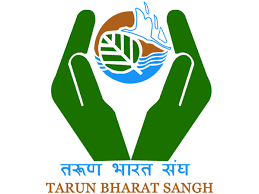About
-
Headquarters
Alwar, Rajasthan
-
Since
1975
Tarun Bharat Sangh (TBS) is a non-profit organisation focused on sustainable development and the empowerment of deprived communities in India. Its obj Read moreective is to bring dignity and prosperity to the lives of destitute individuals, regardless of their economic situation, caste, or religion. TBS promotes community-driven and decentralised management of natural resources. The organisation aims to achieve empowerment through the concept of Gram Swarajya (village self-rule) and community self-reliance. Tarun Bharat Sangh (TBS) initiates its involvement in new villages by promoting the formation of Gram-Sabha, which is an informal village council consisting of representatives from each household. It emphasizes the importance of community participation and does not undertake any activities unless the villagers agree to contribute their resources, particularly voluntary labour. This approach ensures that the villagers have a sense of ownership and encourages their ongoing involvement in the development process.Furthermore, TBS recognizes the significance of establishing, nurturing, and strengthening community-based organisations as part of its strategy for sustainable development. These organisations serve as platforms for collective decision-making and contribute to the long-term sustainability of the developmental initiatives implemented by TBS in the area. TBS focuses on expanding or restoring social and cultural values, balancing human and natural resource development, ensuring women's participation in decision-making, improving education levels, providing better health facilities, and energizing the youth to engage in value-based work.
Programs
-
Women Empowerment Programme
StateWomen's groups have been established to maintain the water harvesting structures and actively participate in the planning and resource management processes at the village level. These groups are also involved in biodiversity conservation and health initiatives, building on the women's traditional knowledge of herbs and enabling them to become healthcare providers for the community. TBS trains women from these groups to become teachers at the learning centres.
-
Policy and Advocacy Programme
StateIt provides training to NGO staff, establishes the credibility of traditional water harvesting structures, supports public advocacy against repressive Government Acts, acts as a mediator between the Government and civil society, and influences water-related policies at various levels. TBS has formed the Rashtriya Jal Biradari, a network of individuals and organisations dedicated to water issues, and launched the Nadi Bachao Abhiyan (Save the Rivers Mission) campaign to protect and restore rivers in India.
-
Education Programme
StateIt has worked to open Government primary schools and engage the community in the supervision of these schools. TBS encourages literate youth from one village to teach children in other villages lacking formal education infrastructure, providing extensive training to these community teachers. TBS also assists in the construction of school buildings and provides educational infrastructure. To address the challenges faced by girls in accessing education and their disempowerment, TBS runs alternative learning centres called "Tarun Shalas." These centres serve as both schools for children and learning centres for adult women, providing a platform for discussions on rights, responsibilities, gender equality, and sustainable development. It also helps reduce child labour and creates a demand for education.TBS is actively involved in environmental education for adolescents, raising awareness about issues such as climate change, ecology, and natural resource management.
-
Natural Resource Conservation Programme
StateIt prioritizes water and forest conservation as the foundations for progress. TBS engages communities by promoting water management through rainwater harvesting structures called "Johads." Over 10,000 structures have been restored, leading to recharged wells, increased biomass productivity, and improved agriculture. TBS also encourages communities to revive forests, conserve natural resources, and develop sustainable systems for fuel and fodder needs. It facilitates decentralized decision-making and promotes a sense of shared commitment to community ecology and economy.
Demographics & Structure
-
No. of Employees
21-50
M&E
-
Internal, External Assessors
No
Policies
-
Ethics and Transparency Policies
No
-
Formal CEO Oversight & Compensation Policy
No
Political & Religious Declarations
-
On Affiliation if any
No
-
On Deployment Bias if any
No
Registration Details
-
PAN Card
AAATT1642H
-
Registration ID
51/1975-76
-
12A
AAATT1642HE20214
-
80G
AAATT1642HF20214
-
FCRA
125420015
-
CSR Registration Number
Not Available
Location
Other Details
-
Type & Sub Type
Non-profit
Society



